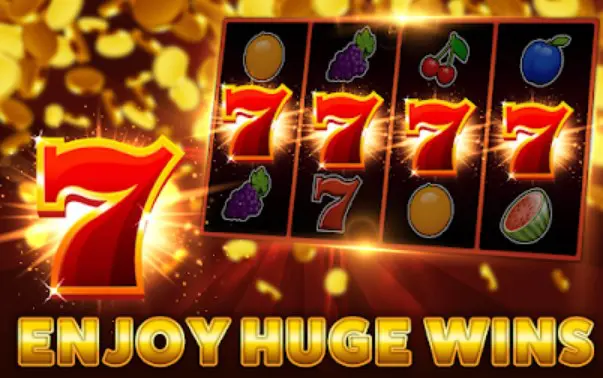Many casinos will tell you that the computer generates random numbers and decides the outcome of the slot machine game. The computer induces what is known as an RNG when players click the “Play” button. Pseudo-random number generators, also known as random number generators, are unique algorithms used to compute when the result must be as unexpected as possible. This abbreviation stands for the gaming term “random number generator.”
The RNG randomly selects from millions of combinations when the play button is pressed. Slot machines don’t heat or cool down. They have one thing in common with goldfish: they have no memories. Each turn is independent of the preceding and subsequent turns. Every spin is considered a new spin. This can result in any combination of symbols.
Slot players can win or lose
Many slot machines display a series or re-spins that make it appear like players are just one symbol away from winning. This leads to the illusion that they have almost succeeded. The slot machines do not operate cyclically, and the jackpots are not permanent.
Slots aren’t random, and I won’t be convinced. I have played slots for years and have seen many examples of them not being arbitrary. This makes it extremely difficult to acknowledge that slot machines are random.
Slot machine games can only be genuinely unpredictable if they are designed to fit mathematical models. I have experienced specific online slots where the “Payout,” or the amount of money won, is displayed BEFORE the bonus spins are over. It is feasible for a slot machine to be random and to return a percentage of the money it has earned.
For example, anyone who has ever played specific slot machines can’t help but notice that you won’t see any symbols for a while, and then suddenly, they appear everywhere!
Sometimes it feels like an algorithm is in control, stopping a particular feature from occurring too soon after you have started a slot game. It only happens once you have lost enough money to cover its payout.
Have you ever consistently won by betting a certain amount, like $1? So you decide to wager more to win more, and your per-spin bet to $2.What happens next? What happens? It’s strange. Slots are supposed to be called random (sarcasm).
Some progressive jackpots are linked to a bank or slot machines. The pot must be won before it reaches a certain amount. If this is true, how can they be random if they must succeed before the jackpot reaches a certain amount? They can hit at any time, which is entirely unexpected. If they need to hit a certain amount, they must be programmed.
In an anonymous online casino survey, I was asked: “Do you feel I have enough playing time to compensate for the money I’ve put into the machine?” If you can’t adjust settings, why ask such a question? The machine would pay out more if a player lost too much money, resulting in a shorter time between games. Online and offline casino customers would feel that the game time adjustment gives them more valuable because they have a longer game time.
You will lose on only one machine, but you’ll lose on all!
I don’t get it. If you win one slot game and then go on to another, all of them are dead. Every win I have had has resulted in me losing more than the winnings. These losses are repeated regardless of the slot I play before I make another deposit. It’s a consistent pattern that I don’t find casual. It’s almost as if all online slot machines are connected to one central computer. You can risk money playing online slots. It doesn’t matter if you win a lot because all the other games will only pay you a little. Random is only possible if your player’s account has been deemed worthy of winning for a second time. It would be easy and quick to use a computer to verify the deposits and the gains or losses your account has experienced over time. The report is then compensated to cover losses of small or medium amounts. This will ensure that you don’t lose long-term. You may also notice that, after a small win, or a payout, the game MUST take that payout back before it gives you another, smaller payout.
Ever played slots for $1 per spin and got a decent payout? Would you wish you could have wagered $5 as you did just a few seconds ago? You can rest assured that if you wagered $5 per turn, the winnings would have been five times the $1 stake. The machine wouldn’t have been “ready to pay” that amount.
Slot machines must have a computer-coded system in place to prevent you from winning over and over. This is why you always lose when you win big Streak. A bonus round occurs 2 or 3 times in a short time after the first one. If this happens again, you can lose a lot.
In my experience, I had big wins when I spent a lot of banknotes on that slot. It seems as if the places were forced to make you conform to the payout percentage rules.
Paying left to right slots are designed so high-paying symbols can be found more often on the first reel than on the second. They are also less common on the third reel. Another trick used by slot makers is to make you believe you might win, but you may miss the last few spins.
Online casinos want to keep you playing. You may not make much profit, but you can still play. When you reach the end of your last withdrawal, you will receive a small win that will keep you coming back.
They are not random. However, I have played them for enough time to know that they are. Next time you play slot machines, take a moment to think about why the main symbols and scatters suddenly disappear after a while. It could be short-term random, yes, or long-term random, but only a little.


